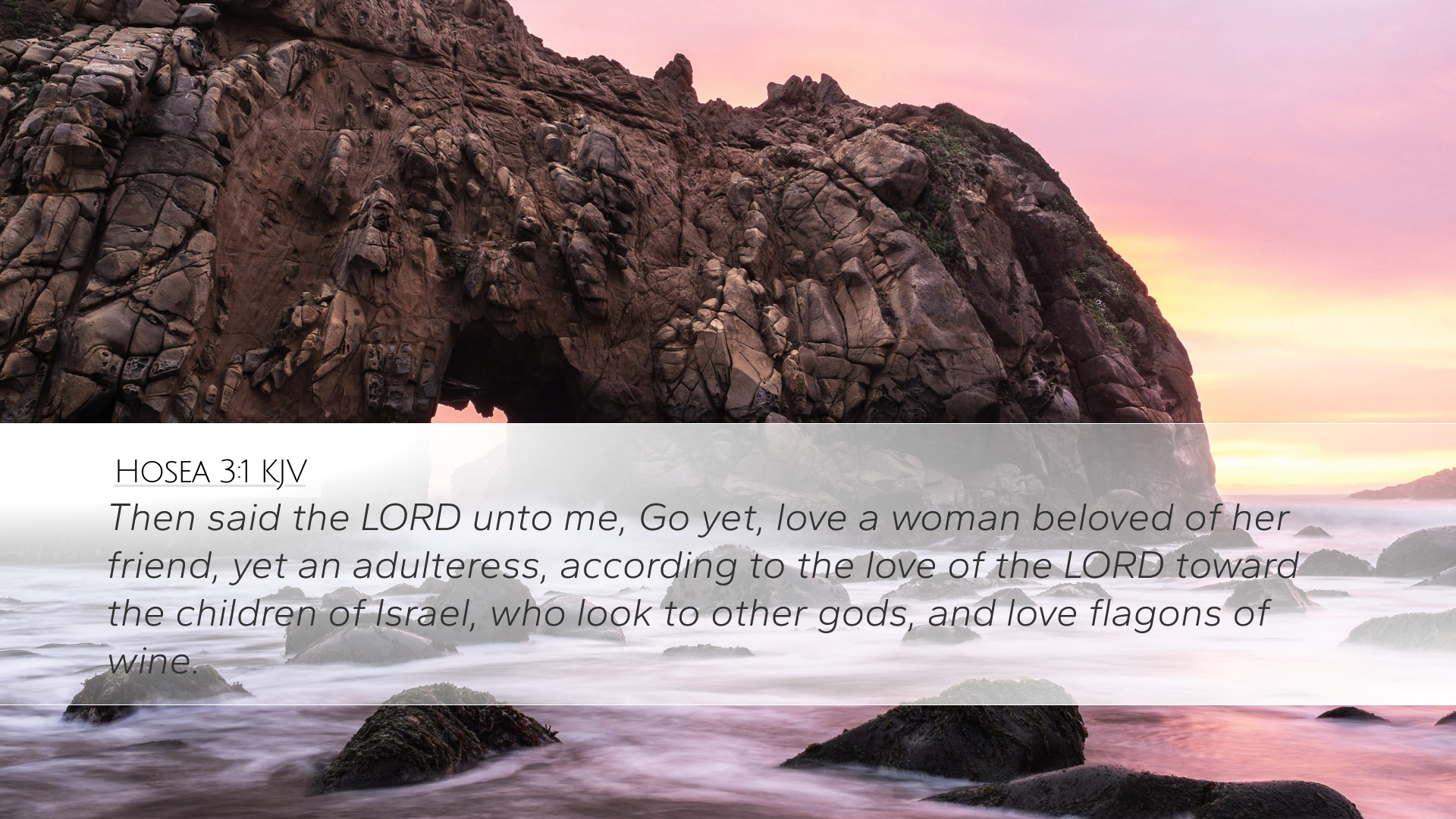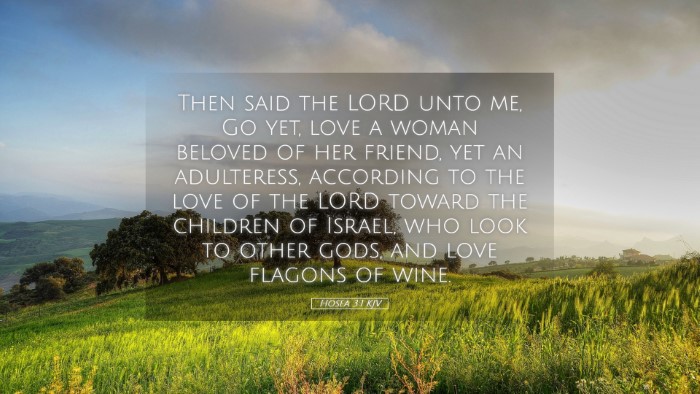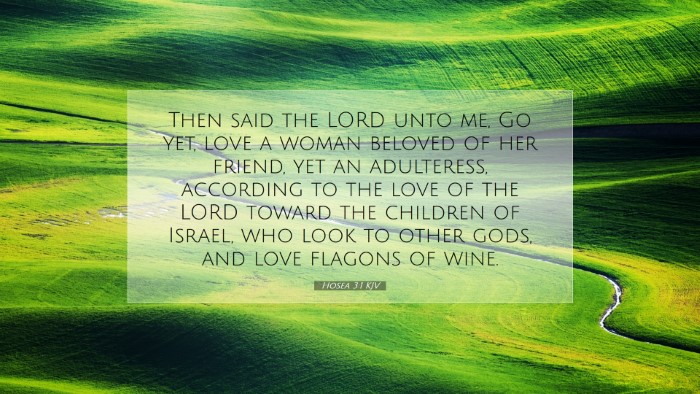Old Testament
Genesis Exodus Leviticus Numbers Deuteronomy Joshua Judges Ruth 1 Samuel 2 Samuel 1 Kings 2 Kings 1 Chronicles 2 Chronicles Ezra Nehemiah Esther Job Psalms Proverbs Ecclesiastes Song of Solomon Isaiah Jeremiah Lamentations Ezekiel Daniel Hosea Joel Amos Obadiah Jonah Micah Nahum Habakkuk Zephaniah Haggai Zechariah MalachiHosea 3:1
Hosea 3:1 KJV
Then said the LORD unto me, Go yet, love a woman beloved of her friend, yet an adulteress, according to the love of the LORD toward the children of Israel, who look to other gods, and love flagons of wine.
Hosea 3:1 Bible Commentary
Commentary on Hosea 3:1
Verse: Hosea 3:1 - "And the LORD said unto me, Go yet, love a woman beloved of her friend, yet an adulteress, according to the love of the LORD toward the children of Israel, who look to other gods, and love flagons of wine."
Introduction
The verse in Hosea 3:1 offers profound insight into God’s unfailing love and the depth of Israel's unfaithfulness. It serves as a pivotal point in the book of Hosea, where personal experience intertwines with prophetic ministry. The commentary reflects on the significance of Hosea’s actions as a representation of God's enduring love toward a wayward people.
Contextual Background
Historical Context: Hosea's ministry occurred during a time of moral decay and spiritual infidelity among the Israelites. The nation engaged in idolatry, turning away from the covenant love of God.
Structural Overview: Hosea's marriage to Gomer became a symbol of God's relationship with Israel, where Israel's spiritual adultery parallels Gomer's infidelity.
Interpretative Insights
Divine Command: The command of the Lord to Hosea to "love a woman beloved of her friend" emphasizes God’s directive despite Gomer's current state of unfaithfulness. This task mirrors the redemptive heart of God towards humanity.
Symbolism of Love: The complexity of love in this verse sheds light on the unconditional nature of God's love (agape). Henry notes that God's love is not contingent upon righteousness but is bestowed freely, as seen in Gomer's undeserving status.
Theological Reflections
Unconditional Love: Albert Barnes elucidates that the love depicted here is akin to God’s love for Israel; despite their transgressions, hope and reconciliation are always held out. This reflects the New Testament's theme of grace.
Idolatry and Its Consequences: Adam Clarke emphasizes the consequences of Israel’s idolatry, equating their love for "flagons of wine" with their pursuit of other gods. This illustrates the emptiness of seeking fulfillment in anything other than God.
Practical Application
- Pastoral Care: Leaders must embody the same patient, long-suffering love that God demonstrates in this text. Understanding congregants’ struggles with sin through this lens invites more grace-filled actions.
- Personal Reflection: Individuals are encouraged to evaluate their own spiritual fidelity, recognizing the areas where they may have strayed from God’s love.
- Theological Education: The text is a rich resource for teaching about Divine love, mercy, and the impact of sin, fostering deeper dialogues within church communities regarding human relationships and God’s faithfulness.
Conclusion
Hosea 3:1 serves as a reminder of the relentless pursuit of a loving God who calls his people not to judgment, but to reconciliation. The insights from public domain commentaries enhance the understanding of this profound scriptural truth, making it relevant for theologians, pastors, and scholars alike. As we reflect on God's love in the face of human unfaithfulness, let us embrace the call to restoration that the Lord models through Hosea's journey.


